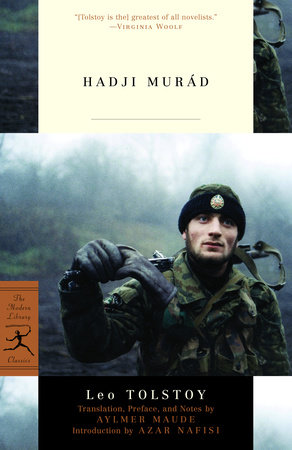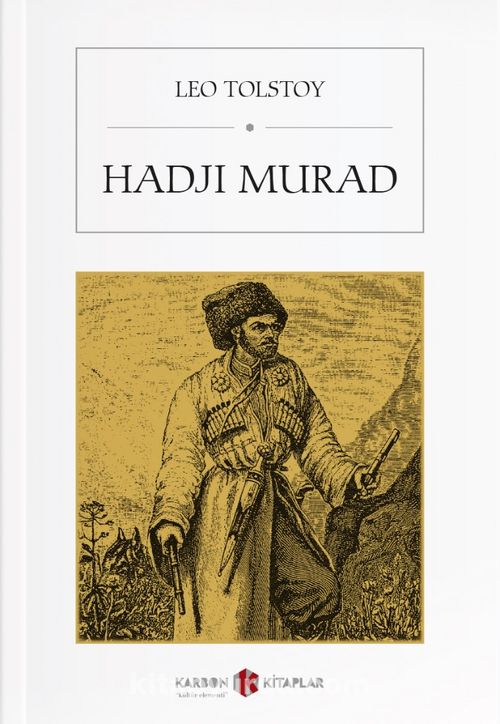Novella Analysis "Hadji Murat" written by Leo Tolstoy
58

"Hadji Murat" is a novella written by Leo Tolstoy, but it was not completed and published until after his death in 1912. The novella explores themes of power, loyalty, and betrayal against the backdrop of the Caucasian War. Here's an analysis of key aspects of "Hadji Murat":
1) Cultural Context:
- Set against the backdrop of the Caucasus region during the mid-19th century, the novella provides insights into the cultural and political dynamics of the time.
- Tolstoy's portrayal of the clash between the Russian Empire and the indigenous peoples reflects his critiques of imperialism and war.

2) Character Complexity:
- Hadji Murat, the main character, is a complex and multi-faceted figure. A charismatic and skilled warrior, he navigates the treacherous political landscape with pragmatism and a sense of honor.
- Tolstoy's nuanced characterization adds depth to the exploration of identity, loyalty, and individual agency.

3) Political Allegory:
- Tolstoy uses the novella to critique the political and military strategies of both the Russian Empire and the Chechen resistance.
- Hadji Murat's struggle to reconcile his personal values with the demands of political alliances serves as a broader allegory for the complexities of power and loyalty.

4) Nature and Setting:
- The novella vividly describes the Caucasus landscape, incorporating the natural environment as an integral part of the narrative.
- Nature serves as a backdrop that influences the characters' decisions and reflects the harsh realities of war.
5) Conflict and Betrayal:
- The novella explores the themes of betrayal and the shifting alliances that characterize conflicts.
- Hadji Murat faces betrayal from both the Russians and his fellow rebels, emphasizing the moral ambiguities of war and politics.

6) Moral Ambiguity:
- Tolstoy introduces moral ambiguities and ethical dilemmas, challenging readers to consider the complexities of right and wrong in a wartime context.
- Hadji Murat's actions, driven by a mix of personal motives and political necessities, add layers to the narrative.
7) Cultural Exchange:
- Tolstoy's depiction of cultural exchange between the Russian and Chechen characters offers insights into the misunderstandings and conflicts that arise when different worlds collide.
- The novella explores the limitations of communication and understanding across cultural and linguistic divides.
8) Themes of Honor and Integrity:
- Hadji Murat's commitment to honor and personal integrity stands in contrast to the political maneuvering of those around him.
- The novella raises questions about the nature of honor in a world where political expediency often trumps individual principles.

9) Unfinished Narrative:
- "Hadji Murat" remains unfinished, with some sections left incomplete. Despite this, the novella retains its power and impact, leaving room for readers to interpret the story's unresolved elements.
"Hadji Murat" is a poignant exploration of the complexities inherent in conflicts, politics, and cultural clashes. Tolstoy's ability to capture the intricacies of human relationships and the moral dilemmas faced by individuals in times of war contributes to the enduring relevance of this novella.
I recommend you to listen ''Hadji Murad'' audiobook for those who don't have time to read;
Hadji Murad - Audiobook (1/25);
This is the first chapter of Hadji Murad novella's audiobook and you can listen rest of it with other videos on the channel I shared here!
References;
- Pevear, Richard; Volokhonsky, Larissa (18 March 2010). "Tolstoy's Stories". HuffPost. Retrieved 10 November 2019.
- "Hadji Murad". Current Opinion. Vol. 52. 1912. p. 478.
- Heier, Edmund (1979). "Hadji Murat in the Light of Tolstoy's Moral and Aesthetic Theories". Canadian Slavonic Papers. 21 (3): 324–335. doi:10.1080/00085006.1979.11091587. JSTOR 40867593.
- Gould, Rebecca Ruth (2013). "Topographies of Anticolonialism: The Ecopoetical Sublime in the Caucasus from Tolstoy to Mamakaev". Comparative Literature Studies. 50 (1): 87–107 [92]. doi:10.5325/complitstudies.50.1.0087. JSTOR 10.5325/complitstudies.50.1.0087.
- Dart, Ron (24 September 2010). "Hadji Murad: A Tale for our Time by Ron Dart". Clarion: Journal of Spirituality and Justice. September 2010.
Thank you for reading and please give me a feedback!
You can complete great comment tasks at here. #hadjimurad #leotolstoy #novella #bookreview #audiobook #culture #reading #writer







































































